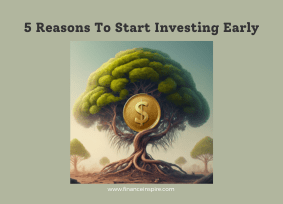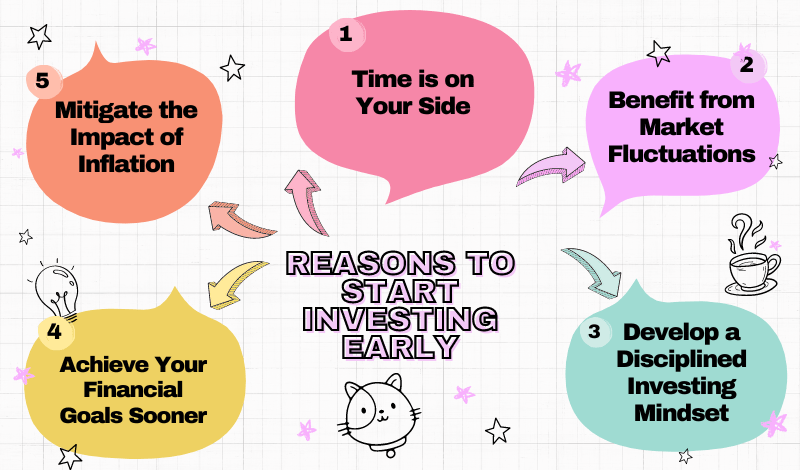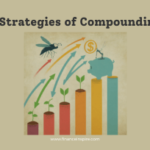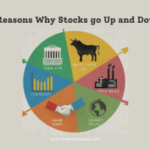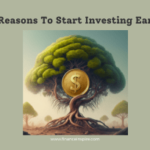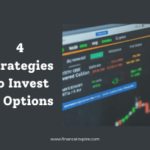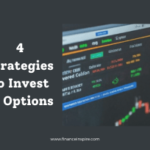Why Should You Start Investing Early? A Comprehensive Guide
Introduction:
When it comes to building long-term wealth, the power of compounding and time are two of the most valuable assets at your disposal. By starting to invest early, you can harness the magic of compounding returns and give your money more time to grow. In this article, we’ll explore the compelling reasons why you should start investing early and provide insights to help you kickstart your investment journey.
Understanding the Power of Compounding:
Before diving into why you should start investing early, it’s essential to grasp the concept of compounding. Compounding is the process by which your investment gains generate additional returns over time. In other words, you earn returns not only on your initial investment but also on the accumulated earnings from previous periods. This effect is amplified when you start investing early, allowing your money to compound over a longer period.
The earlier you start investing early, the more time your money has to benefit from compounding. As Albert Einstein famously said, “Compound interest is the eighth wonder of the world. He who understands it, earns it; he who doesn’t, pays it.”
Reasons Why You Should Start Investing Early:
1. Time is on Your Side
When you start investing early, time is your greatest ally. The more time your investments have to grow, the more significant the potential for wealth accumulation. Even modest contributions made consistently over a long period can result in substantial returns due to the compounding effect.
2. Benefit from Market Fluctuations
By investing early, you expose your portfolio to more market cycles, including both upswings and downturns. While market volatility can be unsettling in the short term, it presents opportunities for savvy investors to buy assets at discounted prices during downturns, ultimately benefiting from the eventual market recovery.
3. Develop a Disciplined Investing Mindset
Starting to invest early fosters a disciplined mindset and helps you develop good habits that can last a lifetime. By consistently contributing to your investments and weathering market fluctuations, you’ll gain valuable experience and become a more confident and resilient investor.
4. Achieve Your Financial Goals Sooner
When you start investing early, you increase your chances of achieving your financial goals sooner. Whether your goal is to retire comfortably, pay for your children’s education, or accumulate wealth for other purposes, the earlier you start, the more time your investments have to grow and compound.
5. Mitigate the Impact of Inflation
Inflation can erode the purchasing power of your money over time. By investing early, you can potentially outpace inflation and preserve the real value of your savings and investments. This is especially important for long-term goals, such as retirement planning.
The Cost of Delaying: An Example
To illustrate the significant impact of starting to invest early, let’s consider an example:
Suppose two individuals, Alex and Sam, both aim to accumulate $1 million by the age of 65. Alex starts investing at age 25, contributing $5,000 annually to an investment account that earns an average annual return of 7%. Sam, on the other hand, delays investing until age 35 and contributes $10,000 annually to the same investment account with the same 7% average annual return.
By the age of 65, Alex, who started investing early, would have accumulated approximately $1.2 million, surpassing the $1 million goal. Meanwhile, Sam, who started investing 10 years later, would have accumulated only around $800,000, falling short of the target.
This example clearly demonstrates the power of starting to invest early and the compounding effect it can have on your long-term wealth accumulation.
How to Start Investing Early
Now that you understand why you should start investing early, let’s explore some practical steps to get started:
1. Develop a Financial Plan
Before investing, it’s crucial to assess your financial situation, set clear goals, and develop a comprehensive plan. Determine your investment objectives, risk tolerance, and time horizon, as these factors will guide your investment decisions.
2. Start With What You Can Afford
Don’t let the perception of needing a large sum of money discourage you from starting to invest early. Even modest contributions can benefit from compounding over time. Start with what you can afford, and gradually increase your contributions as your income grows.
3. Explore Tax-Advantaged Accounts
Consider investing in tax-advantaged accounts, such as 401(k) plans or Individual Retirement Accounts (IRAs), which offer tax benefits and can help accelerate your wealth-building efforts. These accounts can be particularly valuable when you start investing early.
4. Diversify Your Investments
Diversification is a key principle of successful investing. Consider spreading your investments across different asset classes, sectors, and geographic regions to mitigate risk and potentially enhance returns over the long term.
5. Educate Yourself and Stay Informed
Investing requires continuous learning and adaptation. Stay informed about market trends, economic developments, and investment strategies by reading financial literature, attending seminars, or consulting with financial professionals.
6. Automate Your Investments
To make investing a habit, consider automating your contributions through automatic deductions from your paycheck or bank account. This approach can help remove the temptation to spend the money earmarked for investments and ensure consistent contributions over time.
The Power of Starting to Invest Early: Real-Life Examples
To further emphasize the importance of starting to invest early, let’s examine some real-life examples:
Example 1: John’s Early Start
John started investing at the age of 22, contributing $200 per month to a retirement account. By the time he reached 65, his initial investment of $104,400 had grown to over $1.2 million, thanks to the power of compounding.
Example 2: Sarah’s Late Start
Sarah, on the other hand, didn’t start investing until she was 35 years old. To catch up, she had to contribute $600 per month to her retirement account. Despite her higher contributions, by age 65, Sarah’s total investment value was only around $800,000, significantly less than John’s.
Example 3: The Millionaire Next Door
Numerous stories of self-made millionaires highlight the importance of starting to invest early and consistently. Many individuals who achieved millionaire status did so not through high incomes but by living below their means, investing early, and allowing their investments to compound over decades.
Overcoming Common Obstacles to Starting Early:
While the benefits of starting to invest early are clear, many individuals face obstacles that can prevent them from taking action. Here are some common obstacles and strategies to overcome them:
Lack of Financial Knowledge
Investing can seem overwhelming, especially for those without a financial background. However, numerous resources are available to help you learn the basics and build your investment knowledge. Consider taking online courses, reading financial books, or consulting with a financial advisor.
Limited Disposable Income
For those just starting their careers or with limited disposable income, the idea of investing may seem out of reach. However, even small contributions can make a significant difference over time. Start with what you can afford, and gradually increase your contributions as your income grows.
Debt Burden
High levels of debt, such as student loans or credit card balances, can make it challenging to allocate funds for investing. While addressing debt should be a priority, consider developing a balanced approach that allows you to make progress on debt repayment while also starting to invest, even with modest contributions.
Fear and Risk Aversion
The inherent volatility of financial markets can make some individuals hesitant to invest. However, it’s important to remember that investing is a long-term endeavor, and short-term fluctuations are part of the process. Educating yourself, diversifying your investments, and maintaining a disciplined approach can help mitigate risk and alleviate fears.
Conclusion: Embrace the Power of Starting Early
Why should you start investing early? The reasons are compelling: the power of compounding, the ability to weather market fluctuations, the development of a disciplined investing mindset, the potential to achieve your financial goals sooner, and the mitigation of inflation’s impact. By start investing early, you leverage the most valuable asset at your disposal – time.
Remember, it’s never too early to begin your investment journey. Even modest contributions made consistently over a long period can yield remarkable results due to the magic of compounding. Embrace the power of start investing early, develop a solid investment plan, and stay disciplined in your approach. Your future self will thank you for taking this crucial step towards building long-term wealth and financial security.
